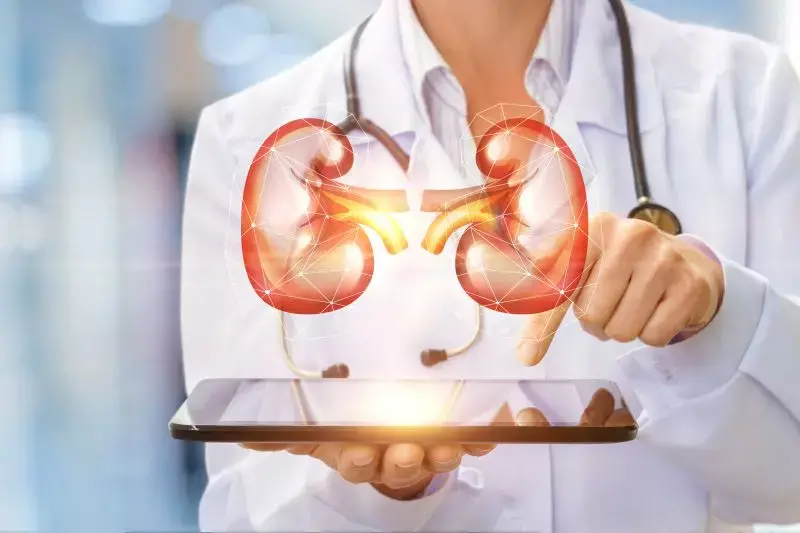- Home
- Medical news & Guidelines
- Anesthesiology
- Cardiology and CTVS
- Critical Care
- Dentistry
- Dermatology
- Diabetes and Endocrinology
- ENT
- Gastroenterology
- Medicine
- Nephrology
- Neurology
- Obstretics-Gynaecology
- Oncology
- Ophthalmology
- Orthopaedics
- Pediatrics-Neonatology
- Psychiatry
- Pulmonology
- Radiology
- Surgery
- Urology
- Laboratory Medicine
- Diet
- Nursing
- Paramedical
- Physiotherapy
- Health news
- Fact Check
- Bone Health Fact Check
- Brain Health Fact Check
- Cancer Related Fact Check
- Child Care Fact Check
- Dental and oral health fact check
- Diabetes and metabolic health fact check
- Diet and Nutrition Fact Check
- Eye and ENT Care Fact Check
- Fitness fact check
- Gut health fact check
- Heart health fact check
- Kidney health fact check
- Medical education fact check
- Men's health fact check
- Respiratory fact check
- Skin and hair care fact check
- Vaccine and Immunization fact check
- Women's health fact check
- AYUSH
- State News
- Andaman and Nicobar Islands
- Andhra Pradesh
- Arunachal Pradesh
- Assam
- Bihar
- Chandigarh
- Chattisgarh
- Dadra and Nagar Haveli
- Daman and Diu
- Delhi
- Goa
- Gujarat
- Haryana
- Himachal Pradesh
- Jammu & Kashmir
- Jharkhand
- Karnataka
- Kerala
- Ladakh
- Lakshadweep
- Madhya Pradesh
- Maharashtra
- Manipur
- Meghalaya
- Mizoram
- Nagaland
- Odisha
- Puducherry
- Punjab
- Rajasthan
- Sikkim
- Tamil Nadu
- Telangana
- Tripura
- Uttar Pradesh
- Uttrakhand
- West Bengal
- Medical Education
- Industry
Retransplantation offers better survival over dialysis, after kidney transplant fails

Washington, DC - Kidney transplantation is the preferred therapy after kidney failure, but kidneys transplanted from deceased donors often do not last for the rest of a recipient's life. Because of the scarcity of donor organs and the immunological sensitization of transplant recipients, it's unclear whether patients whose transplanted kidneys are no longer functioning should receive second transplants, or whether they should be treated with dialysis. A study published in CJASN compares these options.
For the study, a team led by Rainer Oberbauer, MD (Medical University of Vienna, in Austria) analyzed data pertaining to 2,346 adults with a failed first kidney transplant who were waitlisted for a second kidney transplant in Austria during 1980–2019.
At a 10-year follow-up point, patients who received a second kidney transplant had a longer average survival time compared with those who underwent dialysis while remaining on the transplant waitlist. Specifically, patients who underwent retransplantation lived for an average of 5.8 months longer. The difference in survival time with retransplantation was lower in patients who had a longer wait time after their first transplant failed, however. At the 10-year follow-up point, patients who underwent retransplantation lived for an average of 8.0 and 0.1 months of additional life for patients with a waiting time of less than 1 year and 8 years, respectively.
"Our data showed that a second transplantation is advantageous regarding gained life years; however, the difference to non-transplanted patients decreases with time on the waiting list," said Dr. Oberbauer. "Nevertheless, patients might have a higher quality of life when transplanted and therefore should get a second transplant if a suitable donor organ is available." Dr. Oberbauer stressed that patients with a failed first kidney transplant should be waitlisted immediately if they are fit to undergo a second transplantation.
An accompanying editorial notes that "if these results are reproduced in imitated trials from other countries, it would signify the importance of decreasing time on the waiting list for second kidney transplant candidates by measures such as expedited work-up and enlistment of patients with failing first kidney transplants before they require dialysis."
10.2215/CJN.07620621
Hina Zahid Joined Medical Dialogue in 2017 with a passion to work as a Reporter. She coordinates with various national and international journals and association and covers all the stories related to Medical guidelines, Medical Journals, rare medical surgeries as well as all the updates in the medical field. Email: editorial@medicaldialogues.in. Contact no. 011-43720751
Dr Kamal Kant Kohli-MBBS, DTCD- a chest specialist with more than 30 years of practice and a flair for writing clinical articles, Dr Kamal Kant Kohli joined Medical Dialogues as a Chief Editor of Medical News. Besides writing articles, as an editor, he proofreads and verifies all the medical content published on Medical Dialogues including those coming from journals, studies,medical conferences,guidelines etc. Email: drkohli@medicaldialogues.in. Contact no. 011-43720751


